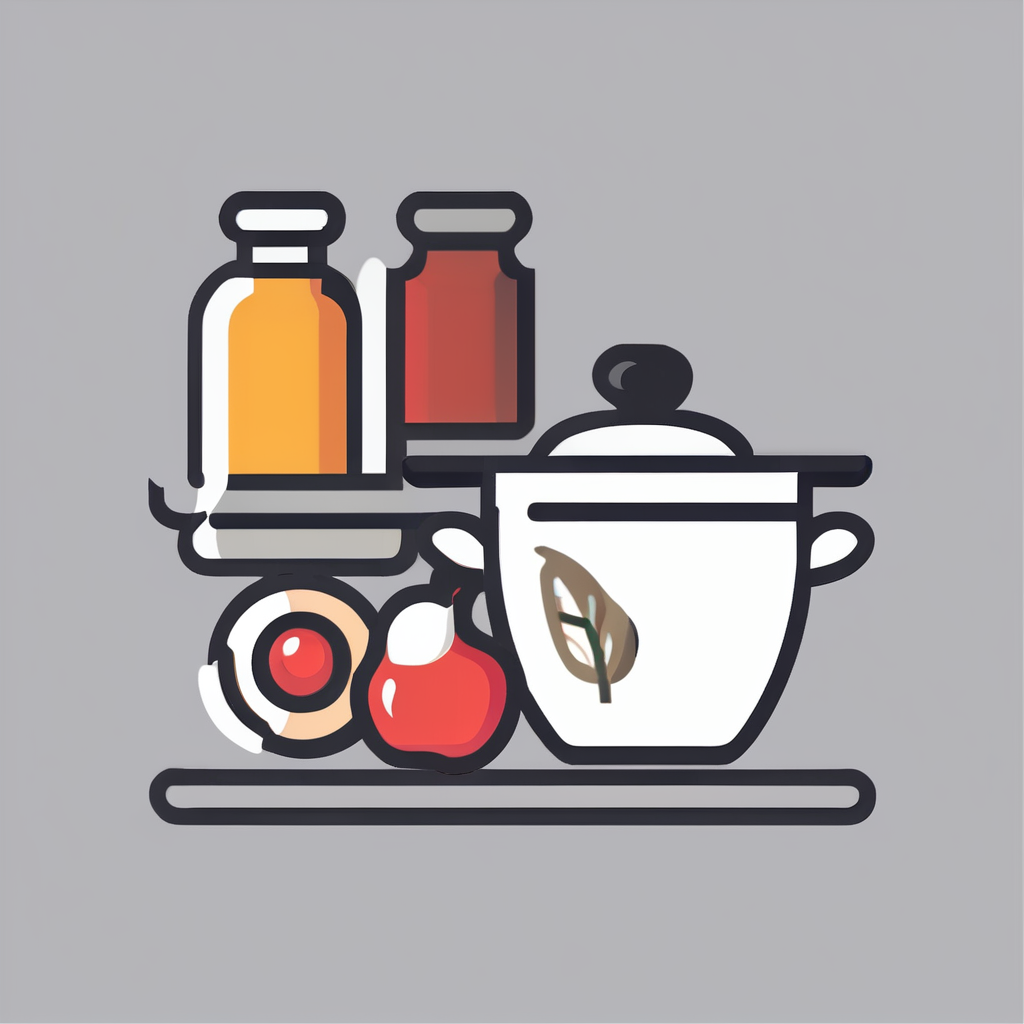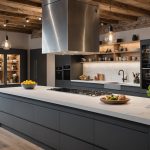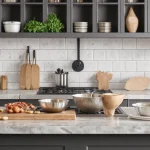Choosing the Right Kitchen Appliance: A Comprehensive Guide
When it comes to outfitting your kitchen with the latest appliances, the choices can be overwhelming. From energy efficiency to smart features, there are numerous factors to consider to ensure you make the right decisions for your kitchen. Here’s a detailed guide to help you navigate the world of kitchen appliances and make informed choices.
Understanding Your Kitchen Design
Before diving into the specifics of appliances, it’s crucial to understand your kitchen design and how it will influence your choices.
Also to discover : What Innovations Are Changing the Face of UK Kitchen Products?
Assessing Your Kitchen Space
When designing or renovating your kitchen, the available space is a critical factor. For small kitchens, integrated appliances or compact models can be a lifesaver.
"Space is a premium in many modern kitchens. Opting for integrated appliances or those with a slim profile can help maintain a clutter-free and spacious feel," says Jane Smith, a kitchen designer.
Here are some tips for maximizing space in a small kitchen:
This might interest you : How Do UK-Made Kitchen Products Influence Modern Cooking Trends?
- Choose Compact Appliances: Look for appliances that are specifically designed for small kitchens, such as compact ovens, microwaves, and fridge freezers.
- Opt for Wall-Mounted Appliances: Wall-mounted appliances like microwaves and ovens can save valuable counter space.
- Consider Multi-Functional Appliances: Appliances that serve multiple purposes, like a toaster oven that can also function as a slow cooker, can reduce the number of appliances needed.
Energy Efficiency
Energy efficiency is a key feature to consider when choosing kitchen appliances. Not only does it help save money on your utility bills, but it also contributes to a more sustainable lifestyle.
What to Look for in Energy-Efficient Appliances
When shopping for energy-efficient appliances, look for the following:
- Energy Star Certification: Appliances with the Energy Star label have met energy efficiency standards set by the U.S. Environmental Protection Agency.
- Energy Consumption Ratings: Check the energy consumption ratings of the appliance. Lower ratings indicate higher efficiency.
- Smart Features: Some smart appliances can optimize energy usage by adjusting their performance based on your usage patterns.
Here is a comparison table of some popular energy-efficient kitchen appliances:
| Appliance | Energy Star Certified | Average Energy Consumption | Smart Features |
|---|---|---|---|
| Samsung Fridge | Yes | 350 kWh/year | Yes |
| Bosch Oven | Yes | 2.5 kWh/hour | Yes |
| Whirlpool Dishwasher | Yes | 270 kWh/year | No |
| LG Microwave | Yes | 1.2 kWh/hour | Yes |
Smart Appliances
Smart appliances are revolutionizing the way we cook and manage our kitchens. Here’s what you need to know:
Benefits of Smart Appliances
Smart appliances offer several benefits, including:
- Remote Control: Many smart appliances can be controlled and monitored via smartphone apps.
- Automated Maintenance: Some smart appliances can notify you when maintenance is required, such as filter replacements.
- Energy Optimization: Smart appliances can adjust their energy consumption based on your usage patterns.
"Smart appliances have made my life so much easier. I can start my oven from my office, and it’s ready to go by the time I get home," says Mark Davis, a tech-savvy homeowner.
Here are some examples of smart appliances and their features:
- Smart Ovens:
- Wi-Fi connectivity for remote control
- Automatic software updates
- Integrated recipe apps
- Smart Fridges:
- Internal cameras to monitor contents
- Touch screens for notes and recipes
- Integration with grocery shopping apps
- Smart Dishwashers:
- Remote start and monitoring
- Automated detergent dispensers
- Energy-saving cycles
Built-In and Integrated Appliances
Built-in and integrated appliances can significantly enhance the aesthetic and functionality of your kitchen.
The Advantages of Built-In Appliances
Built-in appliances offer several advantages:
- Seamless Integration: They blend seamlessly into your kitchen design, creating a cohesive look.
- Space Efficiency: Built-in appliances can be designed to fit perfectly into your kitchen layout, maximizing space.
- Professional Look: They give your kitchen a professional, high-end look.
Here are some popular built-in appliances:
- Built-In Ovens: These ovens are installed directly into the wall, providing a sleek and integrated look.
- Integrated Fridge Freezers: These appliances are designed to fit flush with your kitchen cabinets, creating a seamless appearance.
- Built-In Microwaves: These microwaves can be installed above your cooktop or in a wall unit, saving counter space.
Self-Cleaning and Maintenance Features
Maintenance is an often-overlooked aspect when choosing kitchen appliances. Here’s why self-cleaning and maintenance features are important:
Self-Cleaning Appliances
Self-cleaning appliances can save you a significant amount of time and effort.
- Self-Cleaning Ovens: These ovens use high heat to burn off food residue, leaving a minimal amount of ash to clean.
- Dishwashers with Self-Cleaning Cycles: Some dishwashers come with self-cleaning cycles that remove grease and food particles from the dishwasher itself.
"The self-cleaning feature on my oven is a game-changer. It’s so much easier to maintain than my old oven," says Sarah Johnson, a busy homeowner.
Here are some tips for maintaining your kitchen appliances:
- Regular Cleaning: Regularly clean your appliances to prevent the buildup of grease and food residue.
- Follow Manufacturer Guidelines: Follow the manufacturer’s guidelines for maintenance and cleaning to ensure the longevity of your appliances.
- Check Filters: Regularly check and clean filters in appliances like dishwashers and refrigerators to ensure optimal performance.
Material and Durability
The material and durability of your kitchen appliances are crucial for long-term performance and aesthetic appeal.
Popular Materials for Kitchen Appliances
Here are some popular materials used in kitchen appliances:
- Stainless Steel: Known for its durability and resistance to corrosion, stainless steel is a popular choice for kitchen appliances.
- Glass: Glass doors and surfaces are easy to clean and add a touch of elegance to your kitchen.
- Ceramic: Ceramic surfaces are non-stick and easy to clean, making them ideal for cooktops and ovens.
Here are some benefits of each material:
| Material | Benefits |
|---|---|
| Stainless Steel | Durable, resistant to corrosion, easy to clean |
| Glass | Easy to clean, adds aesthetic appeal |
| Ceramic | Non-stick surface, easy to clean |
Practical Insights and Actionable Advice
Here are some practical insights and actionable advice to help you make the right choices:
Consider Your Cooking Habits
When choosing kitchen appliances, consider your cooking habits. If you bake frequently, an oven with advanced baking features would be a good choice.
Read Reviews and Check Ratings
Always read reviews and check the ratings of appliances before making a purchase. This will give you an idea of the appliance’s performance and any potential issues.
Check Warranty and Support
Ensure that the appliance comes with a good warranty and reliable customer support. This can save you a lot of hassle in the long run.
Choosing the right kitchen appliances is a significant decision that can impact your cooking experience, energy efficiency, and overall kitchen design. By considering factors such as energy efficiency, smart features, built-in options, self-cleaning capabilities, and material durability, you can make informed choices that will enhance your kitchen and save you money in the long run.
Remember, the key to choosing the right kitchen appliances is to understand your needs, assess your kitchen space, and look for features that align with your lifestyle and cooking habits. Happy cooking






